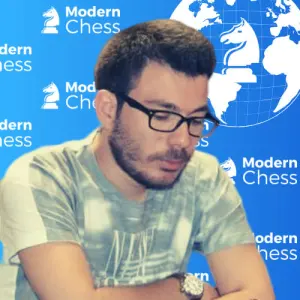
Lucien Febvre
Born July 22, 1878 in Nancy, Grand Est, France
July 22, 1878
Nancy, Grand Est, France0
0 likes276
Updated just nowBehind every public triumph lies a private struggle; Lucien Febvre's remarkable rise was no exception, marked by the intellectual solitude of a man determined to reinvent how history itself was told.
Born on 1878-07-22 in Nancy, France, amid the tremors of a rapidly changing Europe, Febvre absorbed early the textures of cultural tension and human aspiration. The École Normale Supérieure became his crucible, shaping a restless mind unwilling to accept history as a mere chronicle of kings and wars. Years later, that conviction would crystallize into a movement that challenged the academic orthodoxy of his time.
The early decades of the 20th century tested both his ideals and his endurance. Between lectures and endless manuscript revisions, the young scholar wrestled with questions of geography, psychology, and collective emotion. His 1911 work Philippe II et la Franche-Comté hinted at his later brilliance - a historian listening not just to events but to silences, to the murmur of ordinary lives beneath grand narratives.
It was during the interwar years that Febvre's intellectual partnership with Marc Bloch gave birth to the Annales School, a revolution in historical thought. Rejecting narrow political chronicles, they sought to democratize the past - to open the gates of history to peasants, merchants, and forgotten dreamers. From this fertile collaboration emerged works like La Terre et l'évolution humaine (1922) and Le Problème de l'incroyance au XVIe siècle (1942), each a declaration that history breathes through culture and emotion, not just power.
Obscurity shadowed his early theories, yet time vindicated him. His ideas transformed universities, inspired generations, and broadened the historian's craft into a dialogue between memory and meaning. Febvre passed away on 1956-09-26 in Saint-Amour, France, leaving behind not just books but a living method - a lens through which humanity could see itself anew.
Today, Lucien Febvre remains a potent symbol of vision and courage, whose influence continues to shape historiography and inspire the human pursuit of understanding.
Watch Video
Career & Achievements
- Philippe II et la Franche-Comté (1911)
- La Terre et l’évolution humaine (1922)
- La Civilisation: le mot et l’idée (1930)
- Le Problème de l’incroyance au XVIe siècle: La religion de Rabelais (1942)
- Combats pour l’histoire (1953)
- Co-founding of the Annales School with Marc Bloch (1929)
- Directorship of Encyclopédie française (1932–1956)
- Advancement of historical geography and social history in France
Personal Details
Latest News
Centre Lucien Febvre website
Centre Lucien Febvre hosts webinar on open-access publishing in humanities
On April 7 2025 the Centre Lucien Febvre (Université de Franche-Comté) will hold an online event titled "Navigating Open-Access publishing in the Humanities," addressing the specific challenges faced by historians and humanities scholars in the open-science landscape.
ANR France
ANR funds project at Centre Lucien Febvre on sports, bodies and race under fascism
A research programme (ANR-22-FRAL-0006) coordinated by the Centre Lucien Febvre examines the intersection of sport, visual culture and racial ideals in fascist Italy and France. The project totals EUR 669,399 and spans three years from February 2023.
CRESE University of Franche-Comté
Conference marks 40 years of CRESE and links to Centre Lucien Febvre research lab
On November 13 2025 the research centre CRESE (Université de Franche-Comté) celebrates its 40th anniversary,a milestone noted in connection with the work of the Centre Lucien Febvre and its role in social and economic history research in the region.
European Architectural History Network (EAHN)
EAHN symposium reflects on legacy of Lucien Febvre in architectural history
The European Architectural History Network's news-from-the-field noted that recent sessions (10-13 Sept 2025, Porto) included references to Febvre's approach to time and causation in historical methodology, suggesting his influence is reaching into architectural history.
FAQ
Who was Lucien Febvre?
Lucien Febvre was a French historian and co-founder of the Annales School, a movement that transformed historical study by emphasizing social, cultural, and economic contexts over political events.
What was the Annales School founded by Lucien Febvre?
The Annales School, co-founded by Lucien Febvre and Marc Bloch in 1929, redefined historiography by focusing on long-term social structures, everyday life, and collective mentalities rather than isolated historical events.
What are Lucien Febvre's most influential works?
His most influential works include Philippe II et la Franche-Comté (1911), La Terre et l'évolution humaine (1922), and Le Problème de l'incroyance au XVIe siècle (1942), which deeply influenced modern social history.
How did Lucien Febvre influence modern historiography?
Febvre shifted the historian's focus from political elites to the experiences of common people. His ideas encouraged interdisciplinary research, incorporating geography, psychology, and sociology into historical analysis.
Where was Lucien Febvre born?
Lucien Febvre was born in Nancy, Grand Est, France, a region rich in cultural and intellectual exchange that shaped his early worldview.
When did Lucien Febvre live?
He was born on July 22, 1878, and passed away on September 26, 1956, living through the intellectual and political transformations of early 20th-century Europe.
What was Lucien Febvre's role in the Encyclopédie française?
From 1932 to 1956, Febvre directed the Encyclopédie française, promoting a more accessible and analytical presentation of knowledge to the public.
What made Lucien Febvre's historical method unique?
His method emphasized empathy and imagination in reconstructing the past. Febvre believed historians must understand the emotional and cultural worlds of people who lived in other eras.
What challenges did Lucien Febvre face in his career?
He struggled against the academic rigidity of traditional historiography and faced skepticism for promoting interdisciplinary approaches. Over time, his persistence redefined the discipline.
What legacy did Lucien Febvre leave behind?
Lucien Febvre's legacy endures through the Annales School, which continues to inspire historians worldwide to view history as a dynamic, human-centered discipline.
⚔️ Who's More Influential?
Chelsea 💋
Content Creator
Miss Mile High
Content Creator
👆 Click on your favorite to vote
